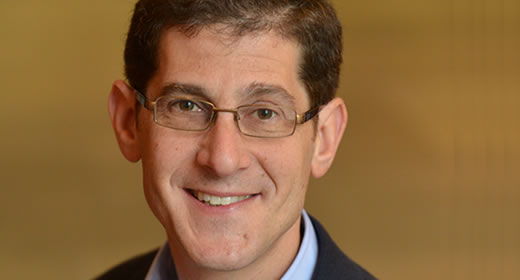
Updated January 7: Read Brian's op-ed in the Detroit News
Brian Jacob has co-authored the first known rigorous national impact evaluation of the No Child Left Behind (NCLB) Act, finding that the legislation has had mixed effects on student achievement.
The research indicates that the NCLB reforms generated statistically significant increases in the average math performance of 4th graders as well as improvements at the lower and top achievement percentiles. There was also evidence of improvements in 8th grade math achievement, particularly among traditionally low-achieving groups and at the lower percentiles. However, the authors find no evidence that NCLB increased reading achievement in either 4th or 8th grade.
"The prior evidence on the achievement effects is quite limited. Earlier studies have either focused on single districts or states, relied on state developed assessments that are subject to 'score inflation', or used weak research designs that confound the impact of NCLB with other social, educational and economic factors, "said Brian Jacob, a professor at the University of Michigan's Gerald R. Ford School of Public Policy. "We believe this new research sheds much-needed light on the results of what was arguably the most far-reaching education policy initiative of the last forty years."
Jacob wrote the study with co-author Thomas S. Dee from Swarthmore College.
Using panel data on multiple student-outcome measures from the National Assessment of Educational Progress, Jacob and Dee compared changes over time in states that had no prior school-accountability system like that required by NCLB and those that did.
In addition to analyzing average effects, the researchers looked at impacts separately by race, gender and free-lunch eligibility. They also looked at how NCLB impact student achievement among students at different achievement levels, ranging from the 10th percentile to the 90th percentile of student achievement. They found that the policy generated only modestly larger impacts among disadvantaged subgroups in math and therefore only made minimal headway in closing achievement gaps.
The authors note that the mixed results pose difficult but important questions for policymakers debating whether to "end" or "mend" NCLB. "Advocates of the legislation will find support in the evidence of substantial and almost universal gains in math," says Jacob. "On the other hand, the lack of any effect in reading, and the fact that the policy appears to have done little to close achievement gaps in math suggests that, to date, the impact of NCLB has fallen short of its lofty goals."
The Federal government passed The No Child Left Behind (NCLB) in January 2002, expanding federal influence over the nation's public schools and compelling states to design school accountability systems based on annual student assessments.
[Read the report]